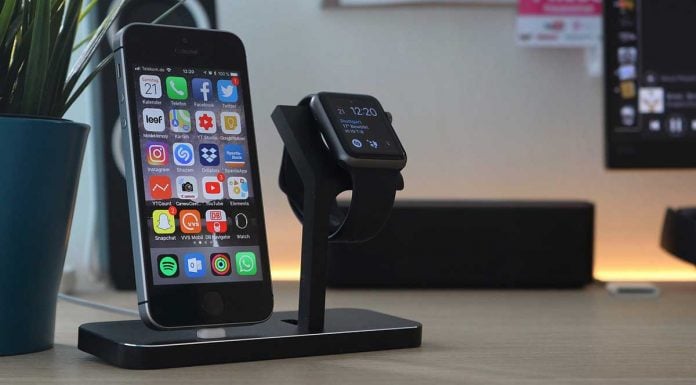On the basis of a preliminary results of a study, researchers from the Stanford University School of Medicine said that wearable technology such as Apple Watch can safely identify heart rate irregularities that subsequent testing confirmed to be atrial fibrillation, a leading cause of stroke and hospitalization the United State.
Each year in the United States, atrial fibrillation results in 130,000 deaths and 750,000 hospitalizations, according to the Centers for Disease Control and Prevention. The CDC estimates that the condition affects between 2.7 million and 6.1 million people. In addition, another 700,000 people may have undiagnosed atrial fibrillation.
With the sponsorship from Apple, the study was launched in November 2017 to determine whether a mobile app that uses data from a heart-rate pulse sensor on the Apple Watch can identify atrial fibrillation. The condition often remains hidden because many people don't experience symptoms.
According to finding of the study, overall, only 0.5 percent of participants received irregular pulse notifications, an important finding given concerns about potential over-notification.
The report said that comparisons between irregular pulse-detection on Apple Watch and simultaneous electrocardiography (ECG) patch recordings showed the pulse detection algorithm (indicating a positive tachogram reading) has a 71 percent positive predictive value. Eighty-four percent of the time, participants who received irregular pulse notifications were found to be in atrial fibrillation at the time of the notification.
According to study, one-third (34 percent) of the participants who received irregular pulse notifications and followed up by using an ECG patch over a week later were found to have atrial fibrillation. Since atrial fibrillation is an intermittent condition, it's not surprising for it to go undetected in subsequent ECG patch monitoring. Fifty-seven percent of those who received irregular pulse notifications sought medical attention.
“The results of the Apple Heart Study highlight the potential role that innovative digital technology can play in creating more predictive and preventive health care,” said Lloyd Minor, MD, Dean of the Stanford School of Medicine. “Atrial fibrillation is just the beginning, as this study opens the door to further research into wearable technologies and how they might be used to prevent disease before it strikes – a key goal of Precision Health.”
For the study, each participant was required to have an Apple Watch (series 1, 2 or 3) and an iPhone. The most recent Apple Watch, which features a built-in ECG, wasn't part of the study, as it was released after the study's launch. The Apple Heart Study app intermittently checked the heart-rate pulse sensor for measurements of an irregular pulse. If an irregular pulse was detected, the participant received a notification and was asked to schedule a telemedicine consultation with a doctor involved in the study through American Well. Participants were then sent ambulatory ECG patches through BioTelemetry, which recorded the electrical rhythm of their hearts for up to a week.
The Stanford principal investigators were Mintu Turakhia, MD, associate professor of cardiovascular medicine, and Marco Perez, MD, associate professor of cardiovascular medicine, and the study chair was Kenneth Mahaffey, MD, professor of cardiovascular medicine.
“The study's findings have the potential to help patients and clinicians understand how devices like the Apple Watch can play a role in detecting conditions such as atrial fibrillation, a deadly and often undiagnosed disease,” said Turakhia. “The virtual design of this study also provides a strong foundation upon which future research can be conducted to explore the health implications of wearable technology.”
“The performance and accuracy we observed in this study provides important information as we seek to understand the potential impact of wearable technology on the health system,” said Perez. “Further research will help people make more informed health decisions.”
Researchers from the Lankenau Heart Institute, Jefferson Medical College, the University of Colorado School of Medicine, Cooper Medical School of Rowan University, StopAfib.org, the American Foundation for Women's Health, and Duke University also contributed to the study.











